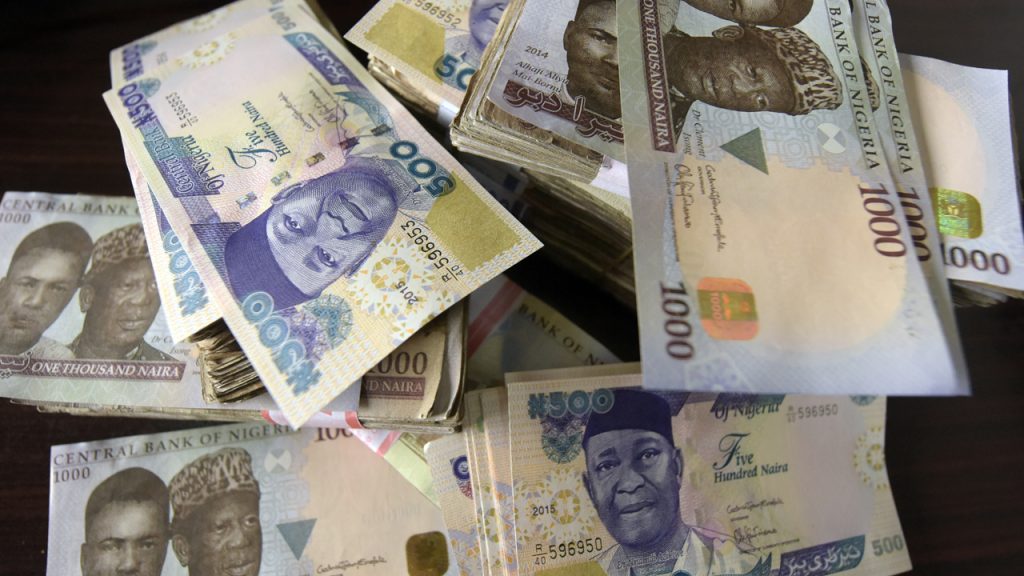The Nigerian naira experienced a significant rally, closing at N1,500.91 to the US dollar at the official Nigerian Foreign Exchange Market (NFEM). This marked a notable achievement as the local currency traded below the N1,500/$ mark for two consecutive days, a feat not seen since March 5, 2025. The naira’s performance reflected a strengthening trend observed since the beginning of September when it opened at N1,526.09/$. The parallel market echoed this positive movement, with the naira appreciating to between N1,515/$ and N1,517/$, further solidifying the currency’s recovery. This positive trajectory is attributed to several factors, including increased demand for the naira, a decrease in speculative trading, and a significant boost in Nigeria’s foreign reserves.
The surge in Nigeria’s foreign reserves played a pivotal role in bolstering the naira. As of Tuesday, the reserves stood at $41.59 billion, representing a $25 million increase from the previous day and reflecting a consistent growth pattern in recent weeks. This substantial increase translates to approximately 10 months of import cover, significantly exceeding the international benchmark of three months. This healthy reserve level provides a strong buffer for the Central Bank of Nigeria (CBN) to effectively manage the exchange rate and maintain overall macroeconomic stability. It also sends a positive signal to investors, particularly foreign portfolio investors, by reinforcing confidence in Nigeria’s economic outlook. The rising reserves are a testament to the relative stability the Nigerian economy experienced in August, driven by moderating inflation, increased crude oil production, and a sharp rise in capital inflows.
Analysts, including Meristem Research, highlighted the importance of these factors in supporting the naira’s rebound. They emphasized that the strengthened reserve position serves as a key economic milestone, demonstrating robust external buffers and enhancing the CBN’s capacity to maintain exchange rate stability. Meristem Research’s analysis pointed to a positive feedback loop where increased oil receipts and a steady rise in non-oil exports contribute to growing reserves, which in turn supports exchange rate stability and attracts further investment. This positive cycle is expected to continue, further strengthening the naira and bolstering confidence in the Nigerian economy.
While the outlook for the naira remains positive, experts acknowledge the presence of potential downside risks. These include the possibility of weaker global oil prices, security vulnerabilities impacting oil production, and the risk of production disruptions. Despite these potential challenges, the current rally is considered to have a stronger foundation compared to past fluctuations due to the confluence of rising external reserves, reduced speculative activity, and increased oil earnings supporting inflows. Maintaining this positive momentum will require sustained macroeconomic discipline, increased crude oil output, and a concerted effort to diversify export earnings.
The sustained appreciation of the naira offers significant benefits for both businesses and households. For businesses, a more stable currency provides relief from fluctuating import costs, allowing for better financial planning and investment decisions. For households, the prospect of continued currency stability offers hope for easing inflationary pressures associated with imported goods, ultimately contributing to improved living standards. The CBN’s efforts to restore stability in the currency market through policy reforms, such as unifying exchange rates, curbing speculative demand, and attracting foreign capital, are instrumental in creating this positive environment.
The current strength of the naira marks a significant turning point for the Nigerian economy. While challenges remain, the combination of rising foreign reserves, increasing oil revenues, and the CBN’s proactive policies provides a solid foundation for sustained currency stability. This positive outlook is expected to attract further investment, stimulate economic growth, and ultimately improve the lives of Nigerian citizens. However, continued vigilance and proactive management of potential risks will be crucial to ensuring the long-term health and stability of the naira and the Nigerian economy as a whole. Maintaining macroeconomic discipline, boosting crude oil output, and diversifying export earnings are key elements in ensuring the sustainability of the naira’s recovery and fostering long-term economic prosperity.


